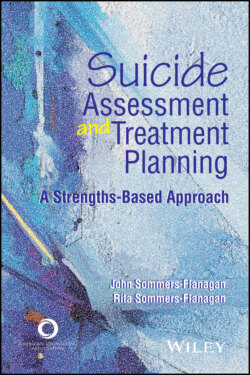Читать книгу Suicide Assessment and Treatment Planning - John Sommers-Flanagan - Страница 23
Examining and Bracketing Attitudes and Beliefs
ОглавлениеEthical counselors cannot allow personal values and attitudes to interfere with the provision of professional services (American Counseling Association, 2014; Corey, 2020). For example, let us say you believe that death by suicide is a mortal sin. You may feel pressured to push clients to banish their sinful suicidal thoughts. Although in most cases, counselors are ethically mandated to help prevent suicide, suicide researchers emphasize that competent suicide assessment and interventions begin with the acceptance of suicidal impulses. If you advocate too hard and too soon against suicide, you may activate client resistance (Brehm & Brehm, 1981; J. Sommers-Flanagan & Shaw, 2017). Instead of saving lives, you may end up alienating clients, thus putting them at greater risk.
The opposite extreme can occur when professionals believe fervently in the right to die by suicide. This belief can be communicated in destructive ways. For example, if your client leaves the session thinking, “My counselor seems to be an advocate for suicide” or “I didn’t get the sense that my counselor wants me to live,” then you have done your client a disservice and probably engaged in malpractice.
If your personal, religious, or philosophical beliefs about suicide interfere with your ability to provide competent and nonjudgmental assessment services, develop a therapeutic relationship, establish a collaborative treatment plan, or provide ongoing management of suicidal behaviors and implement research-supported interventions, then you are engaging in unprofessional and unethical practice. Professionals must be cognizant of their sometimes less than helpful attitudes and beliefs about suicide. Awareness allows professionals to ethically bracket attitudes, beliefs, and biases that could potentially interfere with competent care.
